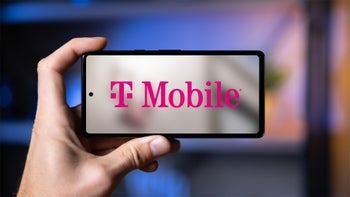Some doubt that Trump could pull off the promised T1 Phone, but his network might be profitable real soon
WIll the iPhone meet his greatest rival come September?

If President Trump can't deliver on his pre-election campaign promises, he'll probably (at least) keep his promise about the Trump T1 Phone and the Trump Mobile service. Right?
Many doubt that Mr. Trump will be able to make this one happen.
The $499 phone, featuring a 6.8-inch screen, 12 GB of RAM, 256 GB of storage, a headphone jack and a MicroSD card slot (hey, that's not bad at all!), was recently announced to go on sale this September. There are claims the phone will be produced in states like Alabama, California, and Florida. However, industry analysts are deeply skeptical – not just about the timeline (indeed it seems extremely short), but about whether domestic production is even feasible.
Experts point out that the US no longer has the kind of vertically integrated supply chain required to build a smartphone from the ground up. Everything from displays and chips to basic components like crystals and sensors are typically sourced from countries like China, Taiwan, and South Korea. As a result, producing a fully American-made phone would require an extensive and expensive overhaul of the existing hardware ecosystem.
Further complicating matters, observers have noted that the T1 bears a strong physical and technical resemblance to the REVVL 7 Pro, a Chinese-made phone currently selling for under $180. This similarity has fueled speculation that the T1 may in fact be a rebranded device produced by an original design manufacturer (ODM) in China – a common industry practice, but one that would contradict Trump Mobile's claims of domestic design and assembly.
Not just contradict, but turn the whole operation into a petty farce. Waging severe economic measures against China and then selling a rebranded Chinese phone is one thing, but claiming that same phone is 100% US-made is the kind of joke that will not play out well.
The President's Trump Mobile service, on the other hand, might turn out to be profitable sooner than later, according to experts.
Trump Mobile's $47.45/mo. plan is priced higher than many of its competitors, yet it could still become profitable relatively quickly if it keeps operating costs low. According to analyst Roger Entner, the service might break even with just 200,000 to 300,000 subscribers – an achievable target if the company avoids major expenses like retail stores and sticks to online sales.
Despite its higher price point, Trump Mobile enters a crowded field where budget-friendly options are already well established. Charter offers mobile service at $30 per month, Comcast at $40, and Altice USA at $25 for the first year, increasing to $35 afterward. Other low-cost rivals include Visible by Verizon and Mint Mobile, both starting at $20 per month, and Boost Mobile at $25. These competitors provide more affordable plans, especially for customers managing multiple lines.
While Trump Mobile may not attract customers based on price or features, it could carve out a niche among brand-loyal consumers. Analysts expect its market impact to be limited, but profitability may still be within reach if it maintains a lean, low-overhead model.
Many doubt that Mr. Trump will be able to make this one happen.
There is no way the phone was designed from scratch and there is no way it is going to be assembled in the US or completely manufactured in the US. That is completely impossible.
– Francisco Jeronimo, vice president at International Data Corp. for CNBC, June 2025
The $499 phone, featuring a 6.8-inch screen, 12 GB of RAM, 256 GB of storage, a headphone jack and a MicroSD card slot (hey, that's not bad at all!), was recently announced to go on sale this September. There are claims the phone will be produced in states like Alabama, California, and Florida. However, industry analysts are deeply skeptical – not just about the timeline (indeed it seems extremely short), but about whether domestic production is even feasible.
And the answer is... Wingtech REVVL 7 Pro 5G!
— Max Weinbach (@MaxWinebach) June 16, 2025
Same device as the T-Mobile REVVL 7 Pro 5G, custom body. Wingtech, now owned by Luxshare, makes it in Jiaxing, Wuxi, or Kunming China https://t.co/KFS3WtMF5O
Further complicating matters, observers have noted that the T1 bears a strong physical and technical resemblance to the REVVL 7 Pro, a Chinese-made phone currently selling for under $180. This similarity has fueled speculation that the T1 may in fact be a rebranded device produced by an original design manufacturer (ODM) in China – a common industry practice, but one that would contradict Trump Mobile's claims of domestic design and assembly.
The President's Trump Mobile service, on the other hand, might turn out to be profitable sooner than later, according to experts.
Trump Mobile's $47.45/mo. plan is priced higher than many of its competitors, yet it could still become profitable relatively quickly if it keeps operating costs low. According to analyst Roger Entner, the service might break even with just 200,000 to 300,000 subscribers – an achievable target if the company avoids major expenses like retail stores and sticks to online sales.
While Trump Mobile may not attract customers based on price or features, it could carve out a niche among brand-loyal consumers. Analysts expect its market impact to be limited, but profitability may still be within reach if it maintains a lean, low-overhead model.
Follow us on Google News














Things that are NOT allowed:
To help keep our community safe and free from spam, we apply temporary limits to newly created accounts: